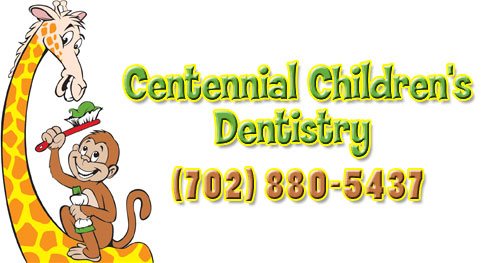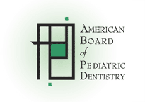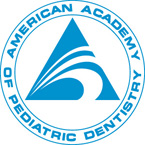
At Centennial Children's Dentistry we strive to create the best Las Vegas Pediatric Dental Office experience possible for your child!
We understand that experiences that your child has in the dental setting at an early age will impact his/her future attitude and comfort level in the dental office environment.
After the initial examination visit, if your child requires additional restorative dental care, Dr. Gostanian and his staff will determine whether your child is a candidate for sedation.
Dr. Gostanian is specially trained to offer different modalities of sedation within the office setting. Additionally, for those patients that require it, our children's dental office offers general anesthesia in an out-patient surgical setting, utilizing the services of a licensed medical anesthesiologist.
Below are descriptions of these treatment options:
Nitrous Oxide:
Some children are given nitrous oxide/oxygen, or what is commonly known as "laughing gas", to relax them for their dental treatment. Nitrous oxide/oxygen is a blend of two gases, oxygen and nitrous oxide. Nitrous oxide/oxygen is given through a small breathing mask (Mr. Nose) which is placed over the child’s nose, allowing them to relax, but without putting them to sleep.
The American Academy of Pediatric Dentistry, recognizes this technique as a very safe and effective one to use for treating children’s dental needs. The gas is mild and easily administered, then with normal breathing, it is quickly eliminated from the body. It is non-addictive. While inhaling nitrous oxide/oxygen, your child remains fully conscious and keeps all natural reflexes.
Prior to your child's appointment:
-
Please inform us of any change to your child’s health and/or medical condition.
-
Tell us about any respiratory condition that makes breathing through the nose difficult for your child. It may limit the effectiveness of the nitrous oxide/oxygen.
-
Let us know if your child is taking any medication on the day of the appointment.
Oral Conscious Sedation:
Oral Conscious Sedation at Centennial Children's Dentistry is recommended for apprehensive children, active children, very young children, or children with special needs. It is used to calm your child and to reduce the anxiety or discomfort associated with dental treatments. Your child may be quite drowsy, and may even fall asleep, but they will not become unconscious.
There are a variety of different medications, which can be used for conscious sedation. The doctor will prescribe the medication best suited for your child’s overall health and dental treatment recommendations. We will be happy to answer any questions you might have concerning the specific drugs we plan to give to your child.
Prior to your child's appointment:
-
Please notify us of any change in your child’s health and/or medical condition. Do not bring your child for treatment with a fever, ear infection or cold. Should your child become ill, contact us to see if it is necessary to postpone the appointment.
-
You must inform the doctor of any drugs that your child is currently taking and any drug reactions and/or change in medical history.
-
Please dress your child in loose fitting, comfortable clothing.
-
Please make sure that your child goes to the bathroom immediately prior to arriving at the office.
-
Your child should not have any food, nor any liquid whatsoever, for at least 4 hours prior to the arrival time for their sedation appointment.
-
The child’s parent or legal guardian must remain at the office during the complete procedure.
-
Please watch your child closely while the medication is taking effect. Hold them in your lap or keep close to you. Do not let them "run around."
-
Your child will act drowsy and may become slightly excited at first.
After your child's sedation appointment:
-
Your child may be drowsy and will need to be watched closely. Keep your child away from areas of potential harm (i.e. no swimming, riding a bicycle, or playing outdoors).
-
If your child wants to sleep, place them on their side with their chin up.
-
If your child is hungry it is best to start with a clear liquid to prevent nausea, then progress to a drink with consistency. Once "numbness" from the local anesthetic wears off (usually approximately 2 hours) your child may eat. The first meal should be soft, light and easily digestible.
-
If your child vomits, help them bend over and turn their head to the side to insure that they do not inhale the vomit.
-
As mentioned, if we used local anesthetic to numb your child’s mouth during the procedure, your child may have the tendency to bite or chew their lips, cheeks, and/or tongue and/or rub and scratch their face after treatment. Please observe your child carefully to prevent any injury to these areas.
-
Please call our office for any questions or concerns that you might have.
Outpatient General Anesthesia:
Outpatient General Anesthesia (aka. Hospital Dentistry) is recommended for apprehensive children, very young children, and children with special needs that would not work well with in-office conscious sedation. General anesthesia renders your child completely asleep (unconscious). This would be the same as if he/she was having their tonsils removed, ear tubes placed, or hernia repaired. This is performed in a hospital or outpatient surgery setting only. All treatment is completed in one session while your child sleeps.
Prior to your child's appointment:
-
Please notify us of any change in your child’s health. Do not bring your child for treatment with a fever, ear infection or cold. Should your child become ill, contact us to see if it is necessary to postpone the appointment.
-
You must inform the doctor of any drugs that your child is currently taking and any drug reactions and/or change in medical history.
-
Please dress your child in loose fitting, comfortable clothing.
-
Your child should not have any food nor drink whatsoever after midnight prior to the scheduled procedure day.
-
The child’s parent or legal guardian must remain at the hospital or surgical site waiting room during the entire procedure. Plan on being at the facility for up to four hours on that day.
After your child's general anesthesia appointment:
-
Your child will be drowsy and will need to be watched very closely. Keep your child away from areas of potential harm (quiet day at home, no outdoor activity!)
-
If your child wants to sleep, place them on their side with their chin up. Wake your child every hour and encourage them to have something to drink in order to prevent dehydration. At first it is best to give your child sips of clear liquids to prevent nausea. The first meal should be soft, light and easily digestible.
-
If your child vomits, help them bend over and turn their head to the side to insure that they do not inhale the vomit.
-
Prior to leaving the hospital/outpatient center, you will be given a detailed list of "Post-Op Instructions" and an emergency contact number if needed.







FIND US AT: